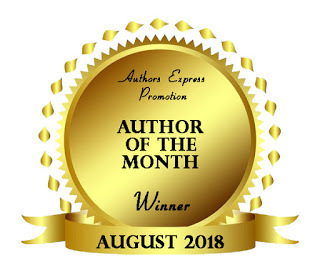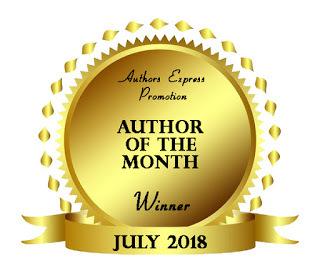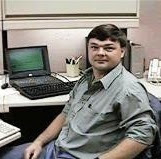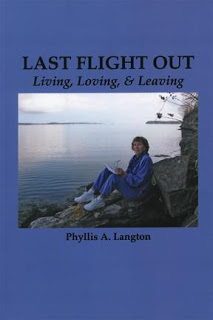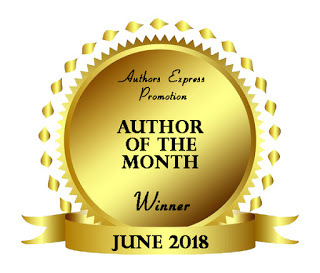Cindy Bauer's Blog: Authors Express Promotion, page 4
January 6, 2019
Linda Ballou joins Authors Express!
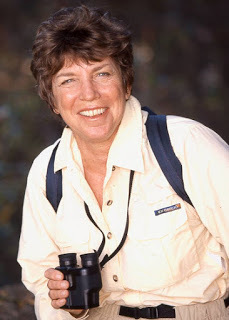 Adventure-travel writer
Linda Ballou
’s ultimate destination piece, Wai-nani, a New Voice from old Hawai’i, takes you to the wild heart of Old Hawai’i. Her travel memoir Lost Angel Walkabout-One Traveler’s Tales is an armchair traveler’s delight filled with adventure to whet your wander lust. Her latest release The Cowgirl Jumped Over the Moonshares the thrill of the show jumping arena and the tender beauty of the John Muir Wilderness. All of her books are available at www.LindaBallouAuthor.com and major online distribution sites in print and kindle format.
Adventure-travel writer
Linda Ballou
’s ultimate destination piece, Wai-nani, a New Voice from old Hawai’i, takes you to the wild heart of Old Hawai’i. Her travel memoir Lost Angel Walkabout-One Traveler’s Tales is an armchair traveler’s delight filled with adventure to whet your wander lust. Her latest release The Cowgirl Jumped Over the Moonshares the thrill of the show jumping arena and the tender beauty of the John Muir Wilderness. All of her books are available at www.LindaBallouAuthor.com and major online distribution sites in print and kindle format. Adventure Travel Expert for the National Association of Baby Boomer Women. Articles sharing travel tips and more are at http://nabbw.com/associates/linda-ballou/
Contact Linda Ballou at lballou6@sbcglobal.net for speaking engagements in the Los Angeles area.
Published on January 06, 2019 16:44
Vaughan Rapatahana joins Authors Express!
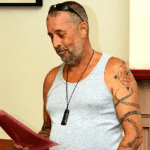 Vaughan Rapatahana
commutes between Hong Kong SAR, the Philippines and Aotearoa New Zealand. He is widely published in several genres in Māori, English and other languages.
Vaughan Rapatahana
commutes between Hong Kong SAR, the Philippines and Aotearoa New Zealand. He is widely published in several genres in Māori, English and other languages. He was a semi-finalist in the Proverse Prize for Literature in 2009, highly commended in the 2013 erbacce-prize for poetry from more than 6000 entries, and won the inaugural Proverse Poetry prize in 2016, the same year as his poetry collection Atonement was nominated for a National Book Award in the Philippines.
His latest poetry collection is ternion (erbacce-press, Liverpool, England).
Vaughan has a PhD in existential philosophy from the University of Auckland on the novels of Colin Wilson, whom he has written extensively about and lectured at the Wilson conference in Nottingham in July, 2018.
Vaughan is also a language critic and instigated and co-edited English language as Hydra and Why English? Confronting the Hydra (Multilingual Matters, UK, 2012, 2016). He has also written commentaries for Jacket2 (University of Pennsylvania), including a 2015–2016 series and a new series currently in progress.
Website: http://www.bookcouncil.org.nz/Writers/Profiles/Rapatahana,%20Vaughan
Published on January 06, 2019 16:41
November 5, 2018
dedicated to promoting authors & their books
Authors Express Promotion dedicated to promoting authors & their books
www.authorsexpresspromotion.com
Membership includes:Author WebpageProfessional Press ReleasePersonalized InterviewFeature in each issue of our magazineBook recommendations to readers at Goodreads
--press release will be submitted to free press release news sites--interview will be posted on the AEP Blog--magazines can be purchased in print to show your fans
Of course, you will still need to actively promote your books yourself, such as setting up book signing events, set up speaking engagements, attend writing conferences, enter contests, etc.
But by joining AEP today will get you started on establishing an internet presence, which can help get you and your books out there to potential readers and hopefully, increase book sales.
While we can't guarantee sales, this is the perfect solution for you if you don't have a website of your own or know how to get started on promoting your books.
AEP also offers services to authors who haven't published and are interested in self-publishing. For additional fees, we can format your manuscript, design your cover, and if needed, help you get published through KDP Publishing, a self-publishing platform owned by Amazon and where you can be published in print and kindle formats.
We Look Forward To Promoting You and Your Books!
Join Today!
Published on November 05, 2018 05:29
August 13, 2018
The Last Day by Robert L. Bryan - New Release!
NEW BOOK RELEASE, FICTIONAL SUSPENSE THRILLER, THE LAST DAY... The Countdown has Begun
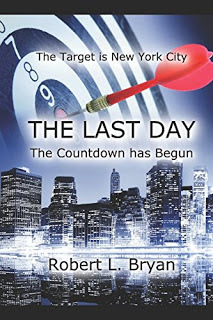 The Last Day...
The Last Day...
New York City is the target and the countdown has begun. An Islamic terror cell has initiated an operation to detonate a nuclear device in Manhattan. Thrust into the middle of this potential Armageddon for New York City are the only four people who can stop it. Bobby Moylan has been a cop’s cop for 42-years and is reluctantly facing his last day due to mandatory age retirement. Inspector Ellen Tomlinson, the Commanding Officer of NYPD Transit Borough Manhattan, was mentored by Moylan and has remained close friends over the years. Ellen has always yearned for much more than friendship with Bobby Moylan, and this may be her last day to fulfill her unrequited love. Lieutenant Joey Galeno is a seasoned NYPD street cop who has been working in counterterrorism for many years. Also a former partner of Bobby Moylan, Joey is desperately trying to obtain solid details from an undercover operation he is running on the terror cell. FBI Special Agent Jimmy Boy Craig is the unlikely undercover agent who Lt. Galeno is depending on to break open his case. Galeno, however, has no faith in his undercover’s ability to get the job done. Can these four unlikely characters come together in facing their own personal last days, or will this be the last day for the island of Manhattan.
First Place Award - 2018 Public Safety Writers Association - Published Fiction
Now Available at:
Amazon https://www.amazon.com/Last-Day-Rober...
Kindlehttps://www.amazon.com/Last-Day-Rober...
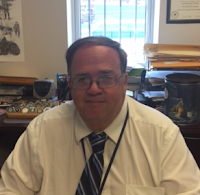
Robert L. Bryan was born in Queens, New York, and has been a lifelong New York City resident. He retired after a twenty-year career with the New York City Police Department at the rank of captain, and is currently the chief security officer at a New York State government agency. He is also an adjunct professor in the homeland security department of a NYC college. Robert has written several short self-help and security / law enforcement related books. His first full-length book, "CONDUCTOR" was inspired by his son's career choice, and details the history of the railroad conductor profession. His next two books -"C-CASE" and "DARK KNIGHTS" are non-fiction accounts of his experiences with the NYPD. Both books won awards in the 2017 Public Safety Writers Association writing competition.
Winner August 2018 Author of the Month - Authors Express Promotion
END OF RELEASEAUTHORS EXPRESS PROMOTION www.authorsexpresspromotion.com
Published on August 13, 2018 06:04
August 2018 Author of the Month Winner!
Published on August 13, 2018 06:00
July 13, 2018
Author of the Month Winner - July 2018
Published on July 13, 2018 09:48
June 12, 2018
June 2018 Magazine is now available
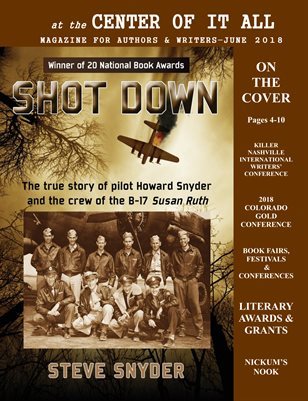
at the CENTER OF IT ALL - June 2018 By Cindy Bauer in at the CENTER OF IT ALL 54 pages, published 6/12/2018 at the CENTER OF IT ALL magazine is for writers & authors. Brought to you by Authors Express Promotion, it is packed with helpful links and information for authors, new book releases, contests, awards and conferences, tips, and more!

Published on June 12, 2018 07:54
June 6, 2018
Author of the Month Winner - June 2018
Published on June 06, 2018 04:32
May 28, 2018
A third novel by award winning Canadian journalist Glen Carter, coming this fall, from Flanker Press

Samuel Bolt has come home. To a place he's never been. To a lover he's never known. To a destiny he could never have imagined.
Published on May 28, 2018 04:50
May 24, 2018
An Interview with Don Unger, author of pulp-fiction "Cannibalistic Sexbot" trilogy...
You've taught Kindergarten through Graduate School. Of these, which "class" of students did you find to be the most inspiring? And why?
I taught in the Writing Across the Curriculum Program at MIT for almost eight years. Essentially: Writing lecturers were integrated into tech classes; those classes were tagged as “writing intensives”; students needed a certain number of those classes to graduate.
The MIT “kids” were smart, of course. But they were also impressively idealistic. I often felt like either our technology is going to kill us . . . or those students are going to invent new tech to save us from our old tech.
While I’m pretty solidly a “liberal arts” person, my father was a professor of computer science—got his doctorate at MIT, in electrical engineering because, in the 1950s, comp-sci did not yet exist as a field—and I literally “grew up around engineers.” In fact, my father was really my first effective writing teacher. Engineers talk about “elegant design” as much as “efficient solutions.”
I recall at the beginning of a writing intensive lab course in medical device engineering, the professor—who was perhaps in his early thirties, South Asian, with a British accent and an Elvis pompadour, an Armani suit and cowboy boots—proclaimed that, “With some justification, engineers are often viewed as smelly, poorly socialized people who can’t write. None of those things are acceptable.”
What did you teach at the University of Albany-SUNY?
I taught a full slate of classes—mostly writing, some lit—for two years as a visiting professor in the English Department.
I grew up in and around New York City and the students were kind of an Up State/Down State split, which I very much enjoyed. It was also nice to be there long enough to have a few students want to take more than one class from me.
The lit classes were also a nice change of pace, not my usual thing. I taught a 19th Century American Lit class, for example, focused on “Utopias and Dystopias.” That was a lot of fun.
I also taught a class (that fulfilled a multi-culti req) on “Growing Up in America.” The stories the students had were as interesting as the works we read.
What is the Princeton Arts Review and how did you come about "founding" it?
I lived in Princeton for two years (1990-1992, while my wife was ABD from Michigan and working on her doctoral dissertation). I taught creative writing classes for adults at the Arts Council of Princeton. When I left, a core group of my students took over and continued the workshops as sort of a collective. They charged a nominal fee and that money—perhaps literally—just accumulated in a shoebox for a while.
They decided it would be a good expansion of the project to start a literary magazine. They asked me to be the “founding editor” and fiction editor. We published perhaps half a dozen issues over a period of a couple of years—essentially in chapbook format. I’m proud of the work, but we were never really able to sell a meaningful number of copies and had to give it up.
You have a BA in Literature/Writing, an MFA in Fiction, and a PhD in English. All of these were obtained at different institutions. What was your intended goal in obtaining your various degrees?
Sigh . . .
I barely graduated high school; I just hated being there: by my junior year, I often simply signed tests and handed them back.
Ironically, the first short story I had published in a national magazine was written in an Algebra II class (which I was taking for the third time; I got my diploma when I took it a fourth time, the summer after I was supposed to graduate). It came out a year after I had finished high school. I went back and gave a copy of the magazine to my math teacher.
One of her signature lines had been, “What are you DOING in my class.”
“This is what I was doing in your class,” I told her.
“Well I’m glad you were doing SOMETHING!” was her response.
I did an eight-year BA at Columbia—part time for six years while I did various kinds of work. Not foolish enough to think that writing could be relied upon for income, I trained as a high school teacher. I needed a master’s degree for permanent certification; I figured an MFA would be a good compromise: I’d get the degree, plus have two years to write my first (unpublishable) novel.
After that, it felt like there were mass firings of high school teachers (for budgetary reasons) wherever I lived. I began getting adjunct work teaching writing classes at colleges. That paid less than what a unionized grocery bagger earns—with less job security.
I began fuming that I would earn more. The “deal” that my wife and I made was that she would have the anchor job; she is a tenured full professor (of Spanish) and will chair her department, come July. Our daughter is twenty-three now, soon to return from a post-grad year in Russia (teaching English and studying Russian). In the fall, she’ll be in a master’s program at Columbia.
In that sense, things have worked out for us as a family unit—though less so for me than for my wife and daughter. br />
Cue Meatloaf: “Two Outta Three Ain’t Bad.”
You've also written for Wharton? Could you explain?
In the 1990s, one of my students from the Arts Council founded something of a publishing empire called Knowledge@Wharton--which now publishes globally in multiple languages. In the last couple of years, they’ve brought most of the work “in-house,” but for almost two decades I did freelance work for them.
I really enjoyed doing book reviews.
But, in general, interviewing business faculty and execs, writing about things like “the impact of gun violence on insurance rates” or “reasons women get paid less,”was fascinating. Having grown up around academics, I had something of an indifference toward commerce and economics. To get paid to study those things, to learn how finance is sort of the “invisible plumbing” that runs so much of our lives, was wonderful.
What inspired you to write the Cannibalistic Sexbots from Space trilogy?
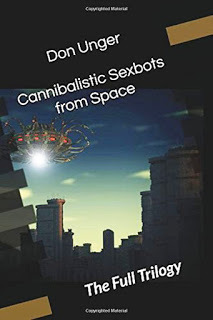 I left MIT (I was “non-renewed”) a few years ago. Since then—with my daughter out of the house, then out of college, then out of the country—I’ve tried to view my wife as “a grant.”
I left MIT (I was “non-renewed”) a few years ago. Since then—with my daughter out of the house, then out of college, then out of the country—I’ve tried to view my wife as “a grant.” I get room and board and health insurance (and love and affection and companionship) and I . . . get to write whatever I want (as long as dinner is ready when my wife gets home).
Sexbots is kind of a “pulp mash-up,” sci-fi, thriller, government conspiracy, black/white cop bromance, mostly set in NYC and in an underground bunker outside Atlanta.
Perhaps a little “cartoony,” it’s sort of the ultimate expression of “really not giving a __________” and just going hard and loose at “and then what could possibly happen?” not feeling burdened by “what will people think or say?”
I think that freedom is both the greatest blessing and the most dangerous pitfall in the burgeoning self-publishing industry (there’s a reason we used to call that “vanity press”).
What prompted the "Men Can" book?
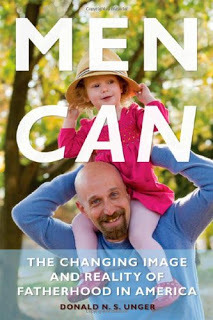 My PhD is in English with a specialization in Composition/Rhetoric. I “went back to school” when my daughter was two-and-a-half (having spent two years at home as primary parent).
My PhD is in English with a specialization in Composition/Rhetoric. I “went back to school” when my daughter was two-and-a-half (having spent two years at home as primary parent). I’m generally a pretty irritable person. In the late 1990s, being one of a very few fathers in a circle of mothers was enraging on a regular basis. Men kind of get whipsawed between, “why don’t men do more to care for their children?” and “why is that guy always hanging around the park?”
If the class is called “Mommy & Me,” it’s hard to feel like you and your child are really being invited in.
I needed to write a diss that focused on language; Anne Lamott has written that, “we write from our wounds.” My twist would be “we theorize from our irritations.”
The diss was called, “The Evolution of Gender-Neutral Language: Can Fathers Mother?” In 2010 (nine years after I earned my PhD), a heavily revised and supplemented version was published by Temple University Press, as “Men Can: The Changing Image & Reality of Fatherhood in America.”
Where did you get your stories for "Brokenhearted Ironies"?
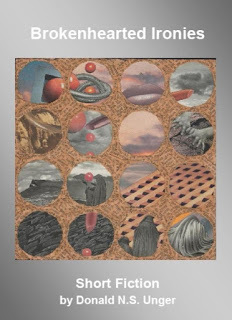 I had a short story collection that had been my undergraduate thesis at Columbia; I had another batch that I had written in the MFA program at Michigan; the collection draws from those sources and other work I’ve done since. Almost all of those stories were originally published in magazines in the US, Canada, and Europe.
I had a short story collection that had been my undergraduate thesis at Columbia; I had another batch that I had written in the MFA program at Michigan; the collection draws from those sources and other work I’ve done since. Almost all of those stories were originally published in magazines in the US, Canada, and Europe. You also have done journalistic work for The Boston Globe, The Philadelphia Inquirer and The Village Voice, among others. Were these columns or single-subject “one shots”?
A little of both. Before and after my daughter’s birth, I had a column in a local paper called “Dads & Diapers.” For a while I was a pretty regular contributor to our local “alternative weekly,” Worcester Magazine.
Mostly, though, I get commissioned to do something or I get irritated and “spew” a piece or I’m trying to figure out some way to subsidize travel: my daughter and I are doing ten days in the Balkans; who can I interview in Croatia?
On the irritable side, as someone with chronic pain issues, the “opioid crisis” and the ways in which it is just crushing people like me has been a recent topic, both in popular venues, like the Boston Globe and in professional pubs like the Journal of General Internal Medicine.
One of the pieces in the Village Voice partially subsidized a trip to Argentina, when I was in grad school and doing research for my first novel.
I was also a regular NPR radio commentator for a few years
Any "words of wisdom" you'd care to shed upon inspiring writers yet to be published?
You need a kind of split personality: You have to be wildly egocentric—to believe that what YOU have to say is “worthy” of an audience (never mind financial compensation); and you have to be willing to have the ego just crushed out of you by the realities of publishing.
I don’t think writing (I don’t think “artistic production” generally) is volitional activity. Some of us have this “disease.” We manage it the best we can . . .
Do you offer signed copies of your books and if so, how would a prospective fan obtain one?
Happy to do that! I’m easily reached to work out details: donunger@hotmail.com
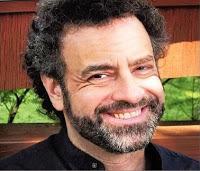
Donald N.S. Unger, MFA, PhDWriter - Teacher - Editor
Formerly a lecturer in the Program in Writing and Humanistic Studies at MIT.
Have worked, as well, among other places, as a Visiting Professor at the University at Albany-SUNY, in the English department, and at the College of the Holy Cross, in both English and Gender Studies. I'm interested in changes in the representation of men, masculinity, and fatherhood in both language use and in popular culture--more or less during my lifetime (b. 1962, NYC).
I also dabble in environmental ranting, humor and something pretty close to pulp fiction.
Then there are political fulminations - one current favorite: the impact of various species of "The Drug War" on people (like me) in chronic pain: https://www.bostonglobe.com/opinion/2...
My short fiction has been published in literary magazines in the US, Canada and Europe.
Among other places, my nonfiction work has appeared in The Boston Globe, The Philadelphia Inquirer, The Village Voice, and Knowledge@Wharton, and its affiliated sites.
I've done political and cultural commentary for the NPR affiliates in Amherst, Massachusetts and Albany, New York.
Published on May 24, 2018 03:39
Authors Express Promotion
Write it - Publish it - Promote it!
Dedicated to promoting authors and their books
To learn more, visit
http://authorsexpresspromotion.com Write it - Publish it - Promote it!
Dedicated to promoting authors and their books
To learn more, visit
http://authorsexpresspromotion.com ...more
Dedicated to promoting authors and their books
To learn more, visit
http://authorsexpresspromotion.com Write it - Publish it - Promote it!
Dedicated to promoting authors and their books
To learn more, visit
http://authorsexpresspromotion.com ...more
- Cindy Bauer's profile
- 136 followers


